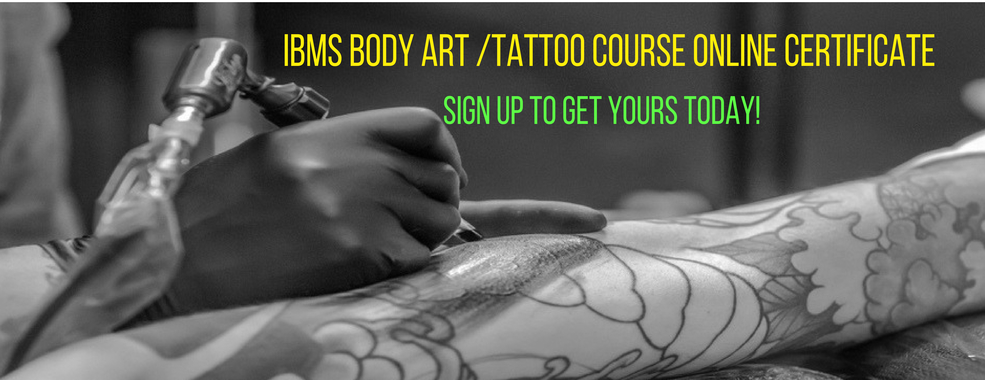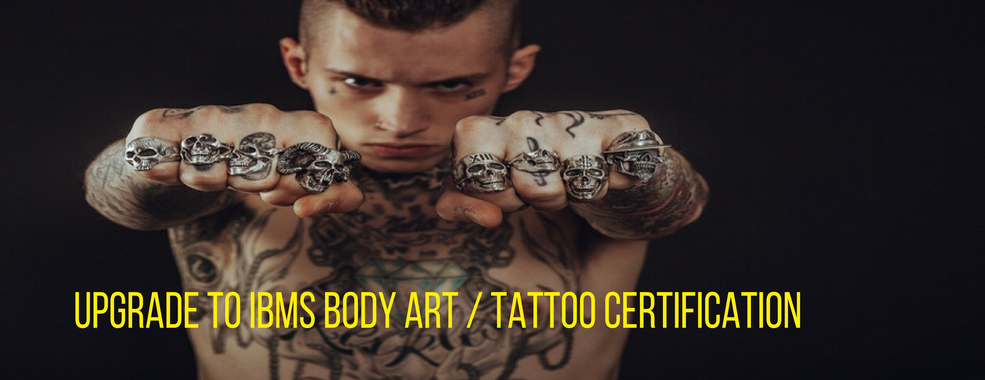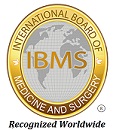en
(H.B. 2437)
(No. 318)
(Approved October 18, 1999)
AN ACT
To regulate the practice of making permanent tattoos; authorize the creation of the Register of Tattoo Artists at the Department of Health; authorize the Secretary of the Department of Health to provide regulations; and to establish penalties.
STATEMENT OF MOTIVES
Tattooing or fixing drawings or designs or other markings on the skin by introducing coloring substances is an ancient custom which has been flourishing during the past few years. At present there are two methods for making tattoos: permanent tattoos are made by using an instrument with needles to puncture the skin; temporary tattoos are made by pressing a non-waterproof piece of paper with a design directly against the skin.
Contracting diseases such Hepatitis B, Hepatitis C or Acquired Immune Deficiency Syndrome (AIDS) is a most serious concern since these viral infectious diseases may be transmitted from one client to another if the necessary health and sterilization measures are not observed while using the equipment needed to make tattoos. For this reason tattooing is an illegal practice in some states of the Union such as New York where by the mid seventies said practice had been prohibited due to the proliferation of Hepatitis B cases brought about by the use of contaminated instruments.
Even though so far no proof has been forthcoming to indicate that any person has been infected with one of these viruses because of said practice, the possibility of contagion may be present since their long incubation period limits the documentation that may support the idea that said viruses may be transmitted through the needles used for tattooing. The Legislature of Puerto Rico believes that in compliance with the obligation of the government to maintain the health and well being of the people, it is necessary to regulate the practice of tattooing, including those who make tattoos, the equipment used to make them and the place where they are made.
BE IT ENACTED BY THE LEGISLATURE OF PUERTO RICO:
Section 1
This Act shall be known as the "Act to Regulate the Practice of Making Permanent Tattoos in Puerto Rico".
Section 2
Definitions.-
The following words shall have the meaning expressed below:
- (a)"Tattoo Artist" means the person who fixes drawings, designs or markings on human skin by introducing coloring substances under the epidermis with needles or scalpels in previously made punctures.
- (b)"Department" means the Department of Health of Puerto Rico.
- (c)"Tattoo Art" means the treatment of the skin by fixing words or designs thereon after lightly tracing them.
- (d)"Owner or administrator of a tattoo studio" means the person who operates and maintains an establishment devoted to tattooing.
- (e)"Contagious diseases" means any type of disease caused by an infectious agent that can be directly or indirectly transmitted by one persons to another.
- (f) "Tattoo studio" means any establishment possessing a license issued by the Department of Health for tattooing.
- (g)"Foreign person" means a person born outside of Puerto Rico or the United States.
- (h) "Register of Tattoo Artists" means the dependency of the Department of Health in charge of the Register of Tattoo Artists and the tattoo studios authorized by the provisions of this Act.
- (i)"Secretary" means the Secretary of the Department of Health.
- (j)"Aseptic Techniques" means the techniques used to prevent infection by inhibiting the development and growth of infectious agents and by destroying the microbes that cause infection.
Section 3
License and Register of Tattoo Artists.-
No person may make tattoos nor call himself or herself a tattoo artist unless he or she possesses a license according to the provisions of this Act and is registered in the Register of Tattoo Artists to be established by the Secretary of the Department of Health for that purpose.
Section 4
Registering.-
The application for registering in the Register shall be filled out in the form provided by the Department and shall be accompanied by the following documents:
- (a) a certified copy of the birth certificate of the person;
- (b)if the person is a foreigner, he or she shall present his or her passport and the immigration visa authorizing him or her to work in the Commonwealth of Puerto Rico;
- (c)an identification of the applicant bearing a front view 2"x 3" color photograph;
- (d)the Social Security or Passport number, if a foreigner; and
- (e)the hepatitis vaccination certificate.
Section 5
Examination.-
Those persons applying for a tattoo artist license shall be given an examination administered by the Department so as to determine whether they have the necessary knowledge concerning the aseptic techniques that would allow them to make tattoos without jeopardizing the health of a client.
Section 6
Term and Renewal of License.-
Should the Secretary determine that the applicant meets the requirements, he or she shall issue a license to authorize the latter to practice tattoo art, in the form of a certificate which shall be fixed to a visible wall of the tattoo studio. The license shall be valid for two (2) years, after which term it must be renewed by filing a renewal application provided by the Department, accompanied by a one hundred and twenty-five (125) dollar fee.
The license renewal application must be presented ninety (90) days prior to the date of its expiration. Every application presented during the term of ninety (90) days shall be accompanied by an additional fee of fifty (50) dollars. Should the application be filed after the license has expired, the Department shall consider the same as if it were an original application.
Section 7
Health Standards.-
The licensed tattoo artists shall meet the following health standards:
- (a) Wear a clean gown (medical type) or surgical robe during the tattooing process;
- (b) Wash and scrub fingernails with antiseptic soap and hot water before beginning and after finishing working on a client;
- (c) Wear disposable gloves, sterile gauze pads and sterilized syringes;
- (d) Wash the area of the body to be tattooed with antiseptic soap.No tattoos may be made in areas of the body showing signs of drug use, injuries, wounds, lesions or dermatological disease;
- (e) If the area to be tattooed must be shaved, use disposable razors during every procedure and again wash the skin with isopropyl alcohol at seventy (70) percent;
- (f) Wash and rinse the stencil used to transfer the design to the skin with a germicidal solution before and after each application and then store the stencil in a sterile container;
- (g) Use non-toxic and tattoo specific pigments and dispose of the residue of the pigments used;
- (h) Once the procedure is finished, dry the tattoo and apply a sterile lubricant available in plastic or metal tubes and then cover the area with sterile gauze;
- (i) Immediately discard the needles and piercing or cutting instruments in labeled puncture-proof containers and dispose of these as hazardous biological material;
- (j) Place equipment and all instruments in a germicidal solution or in an ultrasonic sterilizer;
- (k) Discard the gloves after every use in bags labeled as biomedical waste to be handled by authorized personnel.
Section 8
Information and Statement.-
The tattoo artist as well as the owner or administrator of a tattoo studio shall inform the client, verbally and in writing, about how to care for the tattooed area and that the tattoo is permanent and irreversible. The client shall signs a statement indicating that he or she has read and understood the instructions given, a copy of which shall be kept at the tattoo studio for a term of six (6) months.
The written statement shall contain the following information:
- (a) the name and license number of the tattoo artist and the address and telephone number of the tattoo studio;
- (b) instructions indicating that the tattooed area must not exposed to direct sunlight for at least two (2) weeks and that sterile gauze must be used to frequently clean the area; and
- (c) instructions advising the client to consult a physician if any signs of infection should appear or if any allergic reaction has occurred.
Section 9
Prohibition.-
It is hereby prohibited to fix tattoos on any mentally disabled person or on minors under twenty-one (21) years of age. Violations of this provision shall entail the revocation of the license indefinitely pursuant to the provisions of Section 22 of this Act.
Section 10
Tattoo Studio Licenses.-
No person acting independently or jointly with another, and no firm, corporation or partnership shall operate a tattoo studio without a license issued by the Department of Health authorizing said operation.
Section 11
License Application and Fee.-
- (a) The application for a license to operate a tattoo studio shall be filled out in the form provided by the Department, pursuant to the provisions of this Act;
- (b)
The application shall include the location and address of the studio and the address of the owner or the administrator with the following information:
- (1) true evidence of the fact that the owner or administrator is of legal age;
- (2) good conduct certificate of the owner and the administrator of the establishment;
- (3) a list of the names of all owners or persons holding fifty (50) percent or more of the shares in the corporation that shall operate the studio;
- (4) a three hundred (300) dollar fee;
- (5) a list of all the studio equipment and instruments; and
- (6) a description of the procedures and the nature of the services to be rendered and the health and safety measures to be taken in benefit of the clients and employees.
Section 12
Term and Renewal of Studio License.-
The tattoo studio license shall be valid for a term of four (4) years and must be renewed before said term has expired by paying a fee of one hundred and fifty (150) dollars.
Section 13
Change of Ownership or Location of Studio.-
The owner or administrator of the studio shall notify the Department in writing about any change in ownership or location of the tattoo studio. The change in ownership of the studio shall entail the cancellation of the license which must be returned to the Department.
Section 14
Inspections.-
Tattoo studios shall be inspected before the license is granted, while the same is in effect and when renewed. Authorized representatives of the Department may enter the studio premises during reasonable hours in order to inspect and investigate whether the requirements established in this Act and of the regulations established by the Department of Health pursuant to the same, are met.
To prevent the authorized representatives from entering the studio shall constitute enough grounds to deny or revoke the license. Should the representatives of the Department believe that the studio does not meet the standards required by this Act and by the Department, the Secretary may deny or revoke the license. A new application for a license may not be filed before six (6) months as of the date of the denial or revocation.
Section 15
Administration of the Tattoo Studio.-
The owner or administrator of a tattoo studio must meet the health standards established by the Department as well as the following additional standards:
- (a)Equipment
If the owner administrator of the studio is not a licensed tattoo artist, the former shall provide the latter with an individual set of sterilized syringes to be used on each particular client and shall ensure that the artist complies with the obligation of maintaining them sterile.
The tubes and set of syringes shall be cleansed and sterilized in an ultrasound sterilizer. The equipment shall be immersed in the solution for ten (10) minutes. The solution shall be changed daily and the tank cleaned with isopropyl alcohol at seventy (70) percent every time the solution is changed.
- (b) Sterilization Process
The tattoo studio must be equipped with the necessary sterilization device to accommodate the syringes, tubes and any other instrument. The sterilization procedure shall be conducted scientifically, including the cleaning and removal of tissue or blood before the equipment is sterilized.
Section 16
Denial of License.-
The Secretary may deny issuing a license after notifying the interested party and giving the latter the opportunity to be heard when said party:
- (a) has operated a tattoo studio or illegally practiced tattooing in Puerto Rico;
- (b) has been convicted of a felony or a misdemeanor implying moral turpitude; provided that the Secretary may deny a license under this clause when able to show that the offense committed is substantially related to the qualifications, functions and duties inherent to the practice regulated by this Act;
- (c) has incurred manifest incompetence in the exercise of tattooing, in prejudice to a third party.
- (d) has been declared mentally disabled by a competent court or has had his or her disability established by medical experts;
- (e) is a drug addict or alcoholic; provided that the license may be granted as soon as said person proves to be qualified if he or she meets the requirements established in this Act.
Section 17
Suspension or Revocation of License.-
The Secretary may deny, revoke or suspend temporarily or permanently a license issued according to the provisions of this Act after notifying the interested party and giving the latter the opportunity to be heard when said party:
- (a) has been convicted of a felony or a misdemeanor implying moral turpitude;
- (b) has tried to obtain a license to practice tattooing or operated a tattoo studio through fraud or deceit;
- (c) has incurred in crass negligence while practicing his or her professional duties;
- (d) has been declared mentally disabled by a competent court or has had his or her disability established by medical experts; provided that said license may be reinstated as soon as the person is again declared qualified if he or she meets all other requirements provided in this Act; or
- (e) is a drug addict or alcoholic; provided that said license may be reinstated as soon as the persons is qualified if he or she meets all other requirements provided in this Act.
Section 18
Client Register.-
The owner or administrator of a tattoo studio shall keep a written record of each work performed on a client containing the following information:
- (a) the full name, address, telephone number, age and birth date of the client;
- (b) the pigments used;
- (c) the date on which the tattoo was made;
- (d) the name of the tattoo artist; and
- (e) the signature of the client.
Said information shall be entered into the Client Register which shall be kept in duly bound volumes of not more than five hundred (500) successively numbered pages and which shall be available for inspection at any time by the Secretary of the Department or his or her authorized representatives.
Section 19
Elimination of Biomedical Waste.-
The elimination of biomedical waste shall be conducted according to the standards established by the Environmental Quality Board for such a purpose.
Section 20
Regulations.-
The Secretary of the Department of Health shall adopt the regulations needed to cover all matters not expressly provided in this Act.
Section 21
Penalties.-
Any person who fails to comply with the provisions of this Act shall incur a misdemeanor and if convicted shall be sanctioned with a fine of not more that five thousand (5,000) dollars or a term of imprisonment not to exceed six (6) months or with both penalties at the discretion of the Court and with the suspension or revocation of the corresponding license.
Section 22
Effectiveness.-
This Act shall take effect immediately after its approval for the sole purpose of allowing the Secretary of the Department of Health to establish the Register of Tattoo Artists and adopt the regulations needed to implement the provisions of this Act. All other provisions shall be in effect ninety (90) days after its approval.
CERTIFICATION
I hereby certify to the Secretary of State that the following Act No. 318 (H.B. 2437) of the 6th Session of the 13th Legislature of Puerto Rico: AN ACT to regulate the practice of making permanent tattoos; authorize the creation of the Register of Tattoo Artists at the Department of Health; authorize the Secretary of the Department of Health to provide regulations; and to establish penalties,has been translated from Spanish to English and that the English version is correct.
In San Juan, Puerto Rico, today 17th of January of 2003.
Elba Rosa
Rodríguez-Fuentes
Director
2013 District of Columbia Code
Division VIII — GENERAL LAWS
Title 47 — TAXATION, LICENSING, PERMITS, ASSESSMENTS, AND FEES
Chapter 28 — GENERAL LICENSE LAW
Subchapter I — SPECIFIC LICENSING PROVISIONS
Section 47-2809.01 — Body art establishments.
a) For the purposes of this section and Part D-i of Subchapter I-B of this chapter, the term:
- (1) "Board" means the Board of Barber and Cosmetology.
- (2) "Body art" or "body art procedure" means the process of physically modifying the body for cosmetic or other non-medical purposes, including tattooing, body piercing, and fixing indelible marks or figures on the skin through scarification, branding, tongue bifurcation, and tissue removal.
- (3) "Body artist" means an individual who is licensed under this chapter to perform body art procedures.
- (4) "Body art establishment" means any structure or venue, whether temporary or permanent, where body art procedures are performed.
- (5) "Body piercing" means the perforation of any human body part followed by the insertion of an object, such as jewelry, for cosmetic or other nonmedical purposes by using any of the following instruments, methods, or processes: stud and clasp, captive ball, soft tissue, cartilage, surface, surface-to-surface, microdermal implantation or dermal anchoring, subdermal implantation, and transdermal implantation. The term "body piercing" shall not include nail piercing.
- (6) "Branding" means the process of applying extreme heat with a pen-like instrument to create an image or pattern.
- (7) "Cleansing product" means any material used to apply cleansing agents to the skin, such as cotton balls, tissue or paper products, paper or plastic cups, towels, gauze, or sanitary coverings.
- (8) "Operator" means any person who owns, controls, or operates a body art establishment, whether or not the person actually performs body art procedures.
- (9) "Sanitization" means the reduction of the population of microorganisms to safe levels, as determined by the Department of Health, by a product registered with the Environmental Protection Agency ("EPA") or by chemical germicides that are registered with the EPA as hospital disinfectants.
- (10) "Scarification" means the placing of an indelible mark on the skin by the process of cutting or abrading the skin to bring about permanent scarring.
- (11) "Sharps" means any object, sterile or contaminated, that may penetrate the skin or mucosa, including presterilized single needles, scalpel blades, and razor blades.
- (12) "Single-use" means products or items intended for one-time use that are disposed of after use on a client.
- (13) "Sterilization" means the process of destruction of all forms of life by physical or chemical means.
- (14) "Tattoo" means the placing of pigment into the skin dermis for cosmetic or other nonmedical purposes, including the process of micropigmentation or cosmetic tattooing.
- (15) "Tissue removal" means placing an indelible mark or figure on the skin through removal of a portion of the dermis.
- (16) "Tongue bifurcation" means the cutting of the tongue from tip to part of the way toward the base, forking at the end.
(b)
- (1) The Department of Health shall regulate body art establishments to ensure that such establishments have adequate health, sanitization, sterilization and safety methods, procedures, equipment, and supplies by:
- (A) Establishing minimum sterilization, sanitation, health, and safety standards for the operation of such establishments as may be necessary to prevent infection and contamination of equipment, supplies, or work surfaces with pathogenic organisms; and
- (B) Establishing and imposing operational licensing, registration requirements, and associated fee schedules.
- (2) Within 180 days of [October 23, 2012], the Department of Health shall issue rules to implement the provisions of paragraph (1) of this subsection.
(c)
- (1) All body art establishments offering tattooing procedures shall conspicuously post a written disclosure that states the following: The United States Food and Drug Administration has not approved any pigment color additive for injectable use as tattoo ink. There may be a risk of carcinogenic decomposition associated with certain pigments when the pigments are subsequently exposed to concentrated ultra-violet light or laser irradiation."
- (2) All body art establishments offering tattooing procedures shall maintain documentation on the premises containing the following information and shall disclose such information to customers upon request:
- (A) The components of the pigments used in the body art establishment;
- (B) The names, addresses, and telephone numbers of the suppliers and manufacturers of pigments used in the body art establishment for the past 3 years; and
- (C) Identification of any recalled pigments used in the establishment for the past 3 years and the supplier and manufacturer of each pigment.
- (3) All body art establishments shall maintain and use regularly calibrated autoclave equipment for the sterilization of any non-disposable body art equipment, at a frequency to be established by the Department of Health.
- (4) Only single-use disposable sharps, pigments, gloves, and cleansing products shall be used in connection with body art procedures in body art establishments, in accordance with rules established by the Department of Health pursuant to subsection (b) of this section.
- (5) A body art establishment that is in violation of this subsection shall be subject to license suspension or revocation and a maximum fine of $2,500.
(d)
- (1) No person shall operate a body art establishment or perform body art procedures in a body art establishment unless that establishment has obtained a valid body art establishment license issued by the Mayor.
- (2) No body art establishment shall employ or permit body artists to perform body art procedures in the body art establishment unless the body artist holds a valid body art license issued by the Mayor.
- (3) Any person violating paragraph (1) or (2) of this subsection shall, upon conviction, be deemed guilty of a misdemeanor and may be punished by a fine not exceeding $2,500, imprisonment for not more than 3 months, or both.
History
(Oct. 23, 2012, D.C. Law 19-193, § 3(b), 59 DCR 10388.)
Annotations
Legislative History of Law 19-193 Law 19-193, the "Regulation of Body Artists and Body Art Establishments Act of 2012," was introduced in Council and assigned Bill No. 19-221. The Bill was adopted on first and second readings on June 5, 2012, and July 10, 2012, respectively. Signed by the Mayor on August 17, 2012, it was assigned Act No. 19-448 and transmitted to Congress for its review. D.C. Law 19-193 became effective on Oct. 23, 2012.
Disclaimer : These codes may not be the most recent version. District of Columbia may have more current or accurate information. We make no warranties or guarantees about the accuracy, completeness, or adequacy of the information contained on this site or the information linked to on the state site. Please check official sources.
(1) Definitions. In this section:
- (a) "Tattoo" has the meaning given in s. 948.70(1)(b).
- (b) "Tattoo establishment" means the premises where a tattooist performs tattoos.
- (c) "Tattooist" means a person who tattoos another.
(2) Department; duty. Except as provided in ss. 250.041 and 252.241, the department shall provide uniform, statewide licensing and regulation of tattooists and uniform, statewide licensing and regulation of tattoo establishments under this section. The department shall inspect a tattoo establishment once before issuing a license for the tattoo establishment under this section and may make additional inspections that the department determines are necessary.
(3) License required. Except as provided in sub. (5), no person may tattoo or attempt to tattoo another, designate or represent himself or herself as a tattooist or use or assume the title "tattooist" and no tattoo establishment may be operated unless the person and the establishment are licensed by the department under this section or by a local health department that is designated as the department's agent under s. 252.245.
(4) Rule making. The department shall promulgate all of the following as rules:
- (a) Except as provided in ss. 250.041 and 252.241, standards and procedures, including fee payment to offset the cost of licensing tattooists and tattoo establishments, for the annual issuance of licenses as tattooists or as tattoo establishments to applicants under this section.
- (b) Standards for the performance of tattoos by a licensed tattooist and for the maintenance of a licensed tattoo establishment, which will promote safe and adequate care and treatment for individuals who receive tattoos and eliminate or greatly reduce the danger of exposure by these individuals to communicable disease or infection.
(5) Exception. This section does not apply to a dentist who is licensed under s. 447.03(1) or to a physician who tattoos or offers to tattoo a person in the course of the dentist's or physician's professional practice.
These statutes are subject to change and modification. The Society does not warrant the accuracy or status of either the statutes or regulations. Anyone examining this site should review their own state statutes or regulations for information. These statutes and regulations may not be reviewed for content or accuracy. Publication of this information is educational only and does not constitute legal advice.
| Oversight Body: | Louisiana Department of Health and Hospitals |
| Licensing Contact: | |
| Legislative info available on this site: | 2741. Definitions2742. Registration2743. Rules for minimum sanitary and safety standards2744. Injunctive reliefACT NO. 393 OF 1999 COMMERCIAL BODY ART REGULATION H.B. No. 306
ACT NO. 684 OF 1997 CRIME/PUNISHMENT SENATE BILL NO. 940 ACT NO. 743 OF 1997 CRIME/SEX OFFENSES HOUSE BILL NO. 1814 Louisiana Regulations |
| Most recent legislation: | |
| Other Law Resources: | http://www.alllaw.com/state_resources/louisiana |
















